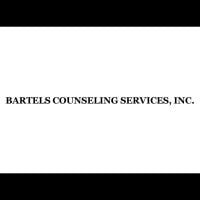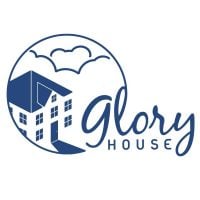Lewis & Clark Behavioral Health - Yankton
Drug Rehab Center in Yankton, South Dakota
Lewis & Clark Behavioral Health - Yankton is a Yankton, SD-based addiction treatment facility that provides detox, drug rehab, dual-diagnosis, inpatient, intensive outpatient, and outpatient levels of care, all of which can help individuals in Yankton, SD to begin the journey of recovery from their addictions.
About Lewis & Clark Behavioral Health - Yankton in South Dakota
Lewis & Clark Behavioral Health - Yankton is a treatment facility located in Yankton, South Dakota that specializes in helping individuals struggling with various substance abuse and mental health issues. They offer a range of services to assist those seeking recovery, including detoxification, residential inpatient care, outpatient programs, and aftercare support. With a focus on addressing alcoholism, drug addiction, opioid addiction, and dual diagnosis conditions, Lewis & Clark Behavioral Health - Yankton aims to provide comprehensive treatment options to support individuals on their path to sobriety. They accept private health insurance, making their services more accessible to those seeking professional help for their addiction or mental health concerns.
Lewis & Clark Behavioral Health - Yankton provides a wide array of treatment methods to address addiction and substance abuse. Their facility offers detox services, which can help individuals safely manage and overcome withdrawal symptoms during the early stages of recovery. For those requiring a more intensive level of care, they provide residential inpatient treatment, offering a structured and supportive environment for individuals to focus on their recovery journey. Additionally, they offer outpatient programs, including intensive outpatient and regular outpatient options, allowing individuals to receive treatment while maintaining their daily responsibilities. Through individual and group therapy sessions, cognitive-behavioral therapy, and other evidence-based treatment modalities, Lewis & Clark Behavioral Health - Yankton strives to help individuals develop coping skills, address underlying issues, and achieve lasting recovery and improved mental health.
Genders
Ages
Modality
Additional
Conditions and Issues Treated
A combination of treatments is often needed to treat drug abuse. Some addictions can be treated with counseling and support groups. In other cases, drug abuse can lead to a medical problem and require medical treatment. Treatment for drug addiction typically combines counseling and psychotherapy with medication and behavioral therapies.
A combination of treatments is often needed to treat drug abuse issues effectively. In the case of drug abuse, there is no easy answer or one-size-fits-all cure.
When someone in struggles with both addiction and mental or emotional illness, this is considered a dual diagnosis. Dual diagnosis treatment can include therapy for these issues to happen simultaneously, which will allow either of them to be treated effectively.
Sometimes people who have suffered from addiction disorder also suffer from co-occurring disorders such as depression, anxiety, bipolar disorder, etc., making them “dual diagnoses.” Dual diagnoses require specialized treatment programs where drug and alcohol addiction are addressed along with psychiatric illnesses. Some rehabilitation facilities provide patients suffering from cooccurrences a program with highly integrated services and a clean environment with few distractions to help them succeed.
Levels of Care Offered
This center offers a variety of custom treatment tailored to individual recovery. Currently available are Detox, Drug Rehab, Dual-Diagnosis, Inpatient, Intensive Outpatient, Outpatient, with additional therapies available as listed below.
One of the first things an addict should do when entering treatment is to abstain from using illicit drugs completely. Depending on the length of time that the person has been using, the addict may have to go through alcohol or drug withdrawal. Fortunately, detox doesn’t have to be done alone, and withdrawal symptoms can be managed medically in an inpatient or outpatient setting. While detox may be uncomfortable, it is not life-threatening. Detoxification allows the addict to rid the body of all traces of drugs or alcohol and gives the addict a clean slate for their recovery.
Inpatient treatment for alcoholism or drug addiction is an option that provides the addict with a supportive environment in which they can stop using. After detox, an inpatient treatment center provides a structured environment for the addict to recover from their addiction and begin taking steps toward a lifetime of sobriety.
This type of treatment is appropriate for addicts that are most in need of intensive care and supervision. This includes those who were unable to quit on their own, those who need more structure than they can get in outpatient treatment, and those whose addiction has led them into legal trouble or severe health problems.
The Intensive Outpatient Program offered by Lewis & Clark Behavioral Health - Yankton is designed for those who need intensive care but would rather get it in the comfort of their own home. The treatment programs vary in duration and intensity and can be tailored to suit the patient’s needs. The program includes regular visits to the facility, though the overnight stay is not needed. IOP is suitable for patients who have been treated in residential treatment programs and are in the transition phase. It helps the patient live at home and discharge some work or school responsibilities even while undergoing treatment. The patients gradually get back to their routine life with the support of a friend or family member.
Outpatient treatment is often used for drug addicts in drug rehab. Outpatient treatment consists of counseling and therapy sessions. This form of treatment is also called ‘day-treatment’. The outpatient treatment process begins with the addict’s initial detox period, lasting about ten days.
Outpatient treatment is used for those who are at moderate risk for ‘slipping back’ into the addiction, for those who:
- Are not currently experiencing any side effects from withdrawal and can handle social pressure
- Can handle stressors that might trigger relapse
- Have a stable living environment or have moved out of their previous environment, which was not conducive to being sober
- Have a support system that allows them to go to a facility a few times a week while still keeping their current responsibilities
- Have no legal obligations, being either on parole or probation, that require them to seek treatment at a mandatory facility
- Are not currently experiencing any side effects from withdrawal and can handle social pressure
- Have a stable living environment or have moved out of their previous environment, which was not conducive to being sober
Therapies & Programs
Because no single treatment is effective for all addicts, the goal of treatment and therapy should be to figure out what works best for each individual. Tolerance and withdrawal levels differ from person to person, affecting the treatment intensity required. Addiction treatment should aim to help addicts develop healthy coping mechanisms for dealing with their addiction and its underlying causes.
Family therapy is beneficial for people who are in addiction treatment services because it offers addicts the opportunity to work with their family members to better understand what led them to make choices that contributed to their addiction.
This type of therapy helps family members reach a deeper understanding of how they can best support their loved one during recovery. It also helps the addict better understand their own motivations and triggers that led them to turn to substance abuse.
Family therapy can help addicts in the following ways:
- Assists family members in processing difficult feelings so they don’t blame or resent recovering addicts
- Assists family members in understanding how addiction has impacted the addict and everyone who is involved with them
- Allows the addict to take responsibility for their actions, while encouraging improved communication skills
- Helps family members understand how to best support an individual in recovery so addicts don’t relapse again.
Group therapy can help build a stronger support system and give addicts in Yankton, SD insight into their addiction that they gain through shared conversations. Group therapy occurs in a controlled group environment, exclusive of one on one meetings. This makes it safer for patients to feel comfortable sharing the struggles they’re going through and gaining perspective.
Cognitive-behavioral therapy is a technique that is used to help people with addiction. Specifically, it is a way of identifying thoughts and behaviors that cause the addiction. It is typically used in an individual counseling session.
The content explains cognitive behavioral therapy and how it works to address some behaviors that may be leading to unintended consequences in their life, as well as its benefits for those seeking sobriety.
It works by helping people to talk through their issues and addressing the thoughts that cause said behaviors. It is an excellent way of learning about oneself and one’s perception of the world.
Payment Options Accepted
For specific insurance or payment methods please contact us.
Is your insurance accepted?
Ask an expert, call (888) 674-0062
Lewis & Clark Behavioral Health Associated Centers
Discover treatment facilities under the same provider.
- Lewis & Clark Behavioral Health - Vermillion in Vermillion, SD
- Martin Addiction Recovery Center in Martin, SD
- Anpetu Luta - Comprehensive Substance Abuse Program in Kyle, SD
Learn More About Lewis & Clark Behavioral Health Centers
Additional Details
Specifics, location, and helpful extra information.
Yankton, South Dakota 57078 Phone Number(605) 655-3474 Meta DetailsUpdated November 25, 2023
Staff Verified
Lewis & Clark Behavioral Health - Yankton Patient Reviews
There are no reviews yet. Be the first one to write one.
Yankton, South Dakota Addiction Information
Although South Dakota is a sparsely populated and somewhat isolated state, it is equally impacted by the national drug epidemic. Substance abuse remains a significant issue that leads to injuries and deaths every year. 17.27% of all deaths between 2008 and 2017 were drug and alcohol-related. Methamphetamines and alcohol are the most commonly abused drug of abuse for those entering treatment in South Dakota.
Treatment in Nearby Cities
- Huron, SD (110.8 mi.)
- Parkston, SD (46.7 mi.)
- Kyle, SD (243.7 mi.)
- Philip, SD (228.5 mi.)
- Flandreau, SD (91.1 mi.)
Centers near Lewis & Clark Behavioral Health - Yankton
The facility name, logo and brand are the property and registered trademarks of Lewis & Clark Behavioral Health - Yankton, and are being used for identification and informational purposes only. Use of these names, logos and brands shall not imply endorsement. RehabNow.org is not affiliated with or sponsored by Lewis & Clark Behavioral Health - Yankton.



